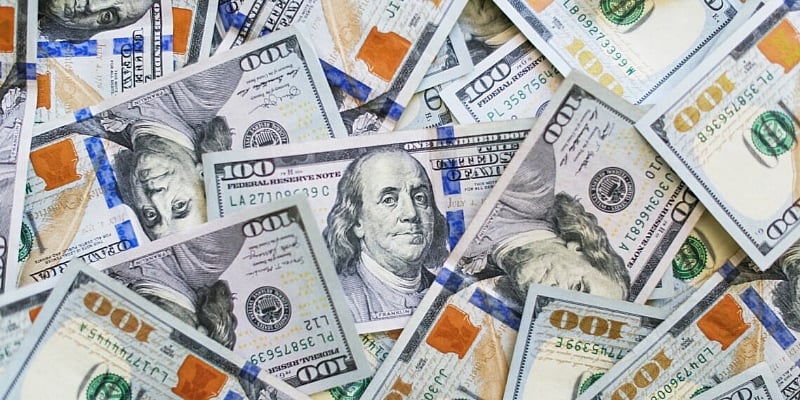Ghana is facing a perplexing economic conundrum: despite a significant influx of foreign currency, businesses are struggling to access dollars, hindering imports and operations. The prevailing narrative is one of dollar scarcity, but a closer examination reveals a different picture. Ghana’s economy is not necessarily lacking dollars; rather, it appears to be grappling with a distribution problem, potentially exacerbated by hoarding. This paradox has created a challenging environment for businesses, forcing them to resort to the black market for forex, driving up costs and weakening the national currency, the cedi.
The evidence for this “dollar blockage” is compelling. In the first four months of 2025, Ghana recorded a substantial trade surplus, fueled by robust exports of gold, cocoa, and oil. Foreign exchange reserves are healthy, exceeding $11 billion, enough to cover almost five months of imports. The Bank of Ghana (BoG) has significantly bolstered its reserves, exceeding IMF targets. Furthermore, the BoG has injected over $1.4 billion into the market in the first quarter of 2025 alone, a substantial increase compared to the entire year of 2023. These indicators suggest a robust supply of dollars, supplemented by disbursements from the IMF and World Bank. Yet, businesses continue to report difficulties accessing these funds.
The disconnect between the availability of forex and businesses’ inability to access it points towards systemic inefficiencies. While the BoG is supplying dollars to commercial banks, these funds are not reaching businesses. Reports suggest that some banks are prioritizing certain clients, potentially hoarding forex, or delaying disbursement. These actions create artificial scarcity, forcing businesses to seek dollars on the parallel market, which operates at significantly higher rates. This, in turn, fuels inflation and weakens the cedi, creating a vicious cycle that negatively impacts the economy. It’s akin to having a full water tank with an open tap, but blocked pipes preventing the water from reaching its intended destination.
While the prevailing narrative suggests a dollar shortage, the data paints a different picture. Three potential explanations emerge: an actual forex shortage (unlikely given the data), inefficiencies in forex allocation (likely), and potential hoarding or mismanagement (highly likely). The evidence suggests the latter two are the primary culprits. The situation highlights a critical flaw in the system: the flow of forex is obstructed between the central bank and businesses. This blockage necessitates immediate action to ensure that the available forex reaches the businesses that need it.
To address this challenge, several measures are crucial. The BoG needs to strengthen its oversight of commercial banks, implementing stricter audits and monitoring mechanisms to ensure transparency in forex distribution. This includes tracking how much forex is allocated to each bank and who the recipients are. Such transparency would discourage hoarding and preferential treatment. Further, a gradual liberalization of the forex market might be beneficial. Introducing market-driven mechanisms could help to streamline the process and reduce bottlenecks. These actions would promote fairer access and create a more efficient system.
The current forex situation in Ghana underscores a fundamental disconnect: the problem is not a lack of dollars, but rather a failure to effectively distribute them. The system is effectively clogged, hindering the flow of forex to businesses. This blockage leads to higher prices, a weaker cedi, and frustration within the private sector. Resolving this requires not more dollars, but decisive action from the regulator to ensure the smooth flow of existing forex reserves. This includes enhancing transparency, strengthening oversight, and potentially liberalizing the forex market. These actions are essential to unblock the financial pipelines, facilitate access for businesses, and stabilize the Ghanaian economy. The ultimate goal is a functional system where forex flows freely from the central bank to businesses, fostering economic growth and stability.


